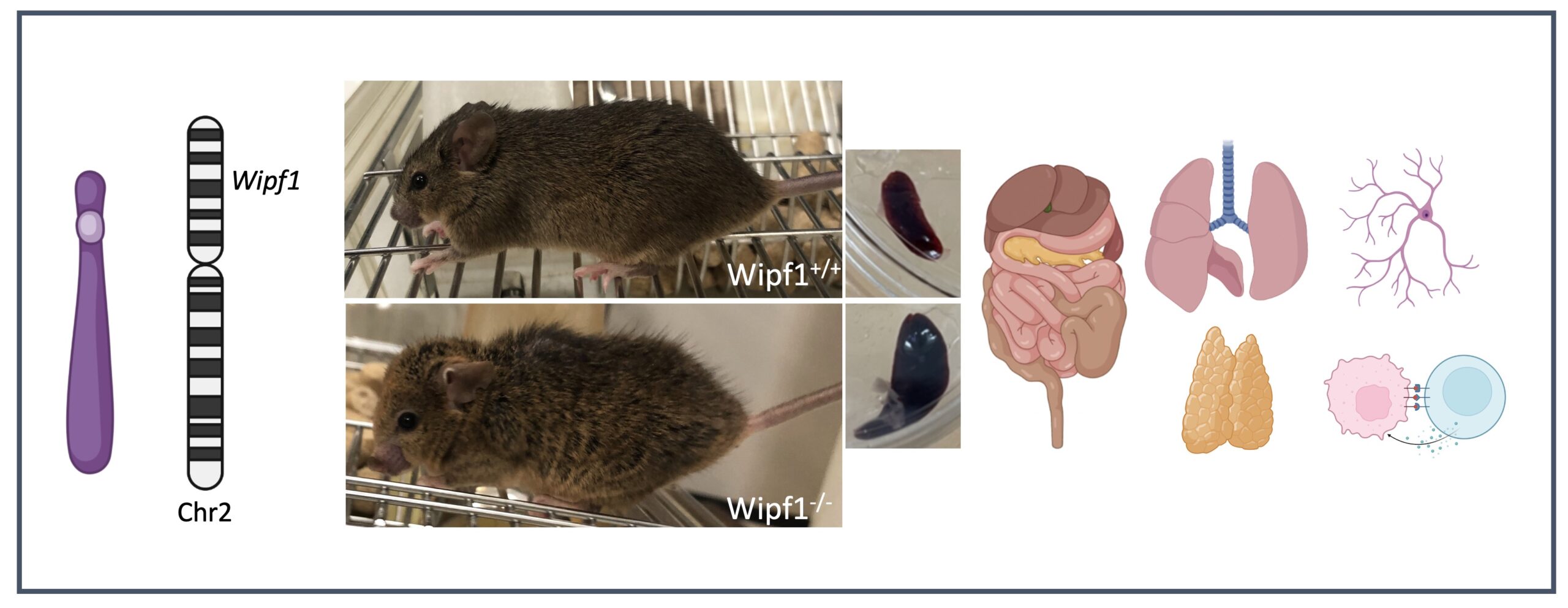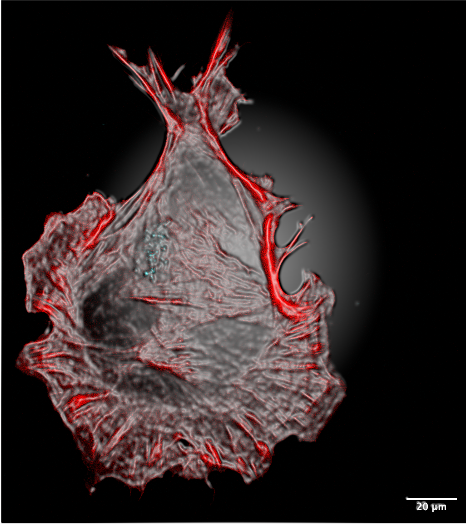Actin cytoskeleton in aging, tumor generation and invasiveness
RESEARCH GROUPS

Inés M. Antón
Group Leader
Research Summary
Essential biological processes such as aging, cell motility and tumor invasion rely on the spatial and temporal regulation of actin dynamics and, therefore, their deregulation is at the root of severe pathologies. Actin reorganization is controlled by nucleation-promoting factors like (neural)-Wiskott-Aldrich Syndrome Protein, (N)-WASP, and cortactin, and associated proteins that regulate their activity such as WIP (WASP-Interacting Protein), which is ubiquitously distributed and stabilizes actin filaments. Our goal is to define the role of WIP- and WASP-family proteins in actin dynamics within a variety of cellular processes in murine embryonic fibroblasts, astrocytes and glioblastoma cells.
Research Lines
Cancer can generate from oncogene-mediated transformation of stem cells. Aged stem cells are more vulnerable to malignant transformation, making aging a risk factor for developing cancer. Altered integrity of the actin cytoskeleton perturbs cell metabolism and tissue homeostasis contributing to functional decline in older individuals, thus modifiers of the actin cytoskeleton dynamics can be additional inducers of age-associated diseases like cancer. WIP (Wiskott-Aldrich Syndrome Protein (WASP) Interacting Protein) serves as an appropriate model to study cancer development and aging, as it regulates the organization of the actin cytoskeleton and participates in cell proliferation, migration, invasion, differentiation and tumor progression.

Our group aims to define the molecular and physiological bases of WIP function in relation to stem cell activity during cell transformation and organism aging. A combination of biochemical, proteomic and transcriptomic approaches, advanced imaging and 2/3D cell cultures, have led us to describe the pro-oncogenic activity of WIP in solid tumors like GBM (glioblastoma), colorectal and breast cancer mediated by transcription regulators YAP/TAZ. Database analysis confirmed that low WIP levels correlate with a higher overall survival of cancer patients (GBM, head and neck, gastric, thyroid and breast). Interestingly, WIP acts as a tumor suppressor in ALK+ (anaplastic lymphoma kinase) hematological cancers. Our proteomic analyses of the WIP interactome have identified potential candidates that could explain WIP specific activity in solid tumors, focusing on GBM. Complementary, we are studying why WIP-deficient mice present shorter lifespan and phenotypic characteristics compatible with premature aging, such as immunological disorders or homeostatic alterations of tissues relying on proper stem cell activity.
Our results reinforce the importance of WIP as a promising therapeutic target both for cancer and aging. They also open new venues to study the contribution of actin cytoskeleton regulatory proteins in (cancer) stem cell development and functionality, and their contribution to associated human diseases.

Publications
Group Members
Group Leader
Inés M. Antón Gutiérrez
PhD candidates
Jorge de los Santos Galán Cruz

Funding
Our research is funded by national and international institutions as indicated below. For more details, please check the general Funding Section at the CNB website.
News
Real-space heterogeneous reconstruction, refinement, and disentanglement of CryoEM conformational states with HetSIREN
Nat Commun. 2025 Apr 22;16(1):3751. Herreros D, Mata CP, Noddings C, Irene D, Krieger J, Agard DA, Tsai MD, Sorzano COS, Carazo JM. Abstract Single-particle analysis by Cryo-electron microscopy (CryoEM) provides direct access to the conformations of...
Ceftazidime-avibactam use selects multidrug-resistance and prevents designing collateral sensitivity-based therapies against Pseudomonas aeruginosa
Nat Commun. 2025 Apr 9;16(1):3323. Hernando-Amado S, Gomis-Font MA, Valverde JR, Oliver A, Martínez JL Abstract Ceftazidime-avibactam is a β-lactam/β-lactamase inhibitor combination restricted for the treatment of multidrug-resistant infections of Pseudomonas...
El Centro Nacional de Biotecnología estrena nueva imagen para reflejar una etapa de renovación y evolución
El nuevo logotipo está compuesto por una espiral que representa una hélice de ADN vista desde arriba, inspirada en la emblemática “Fotografía 51” de Rosalind Franklin, clave para desentrañar su estructura La presentación de esta imagen coincide con el Día del ADN, una...



